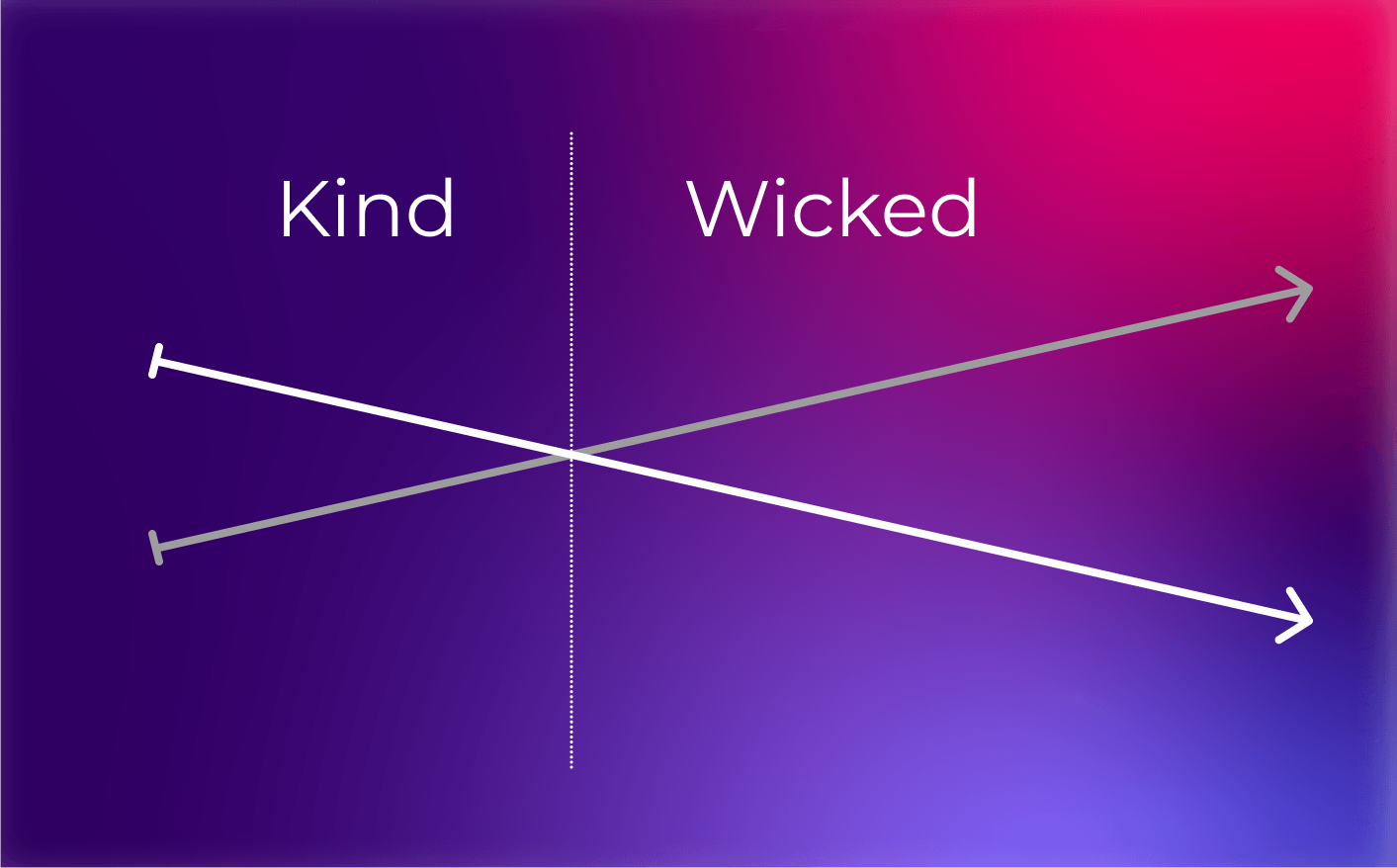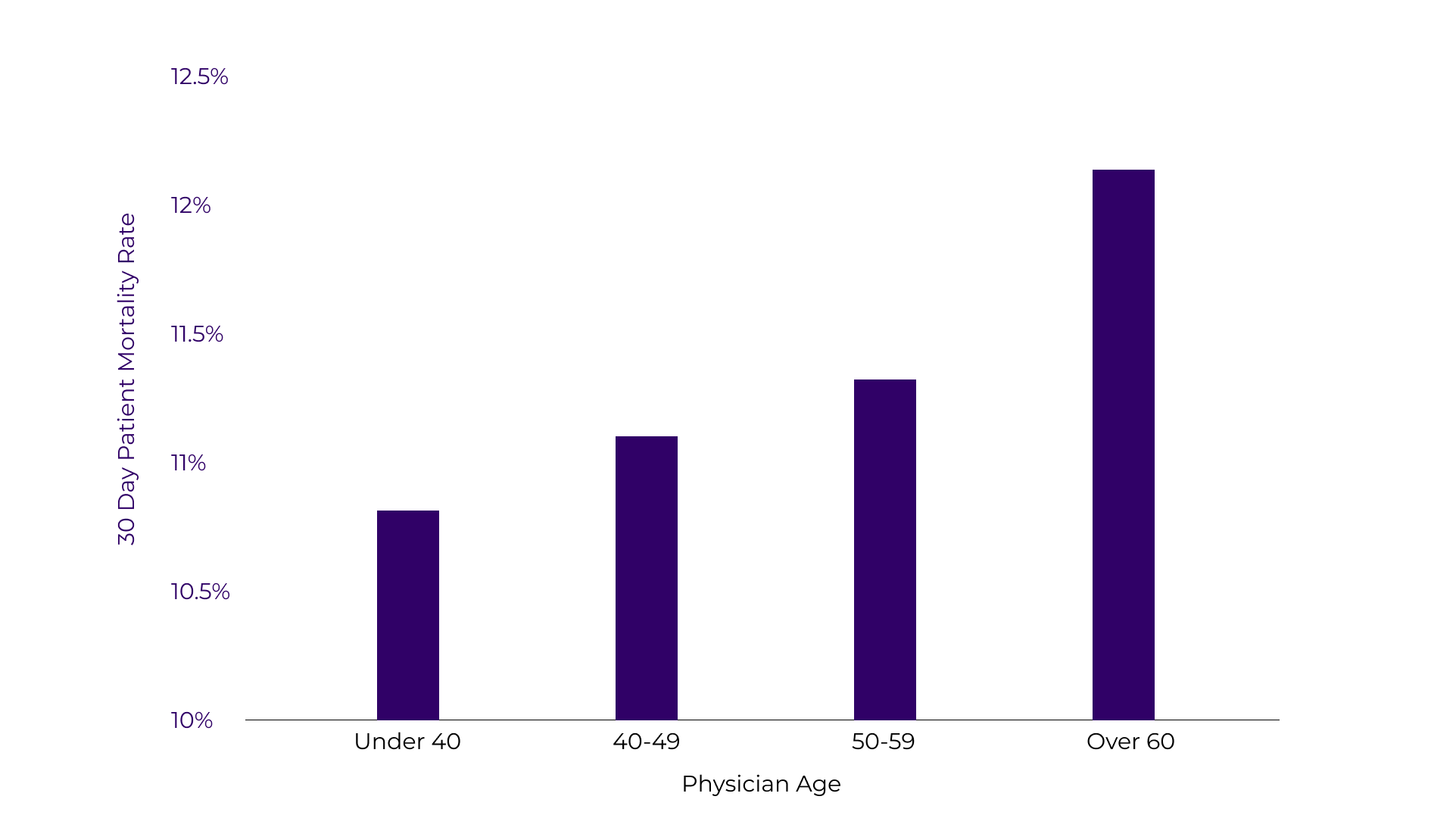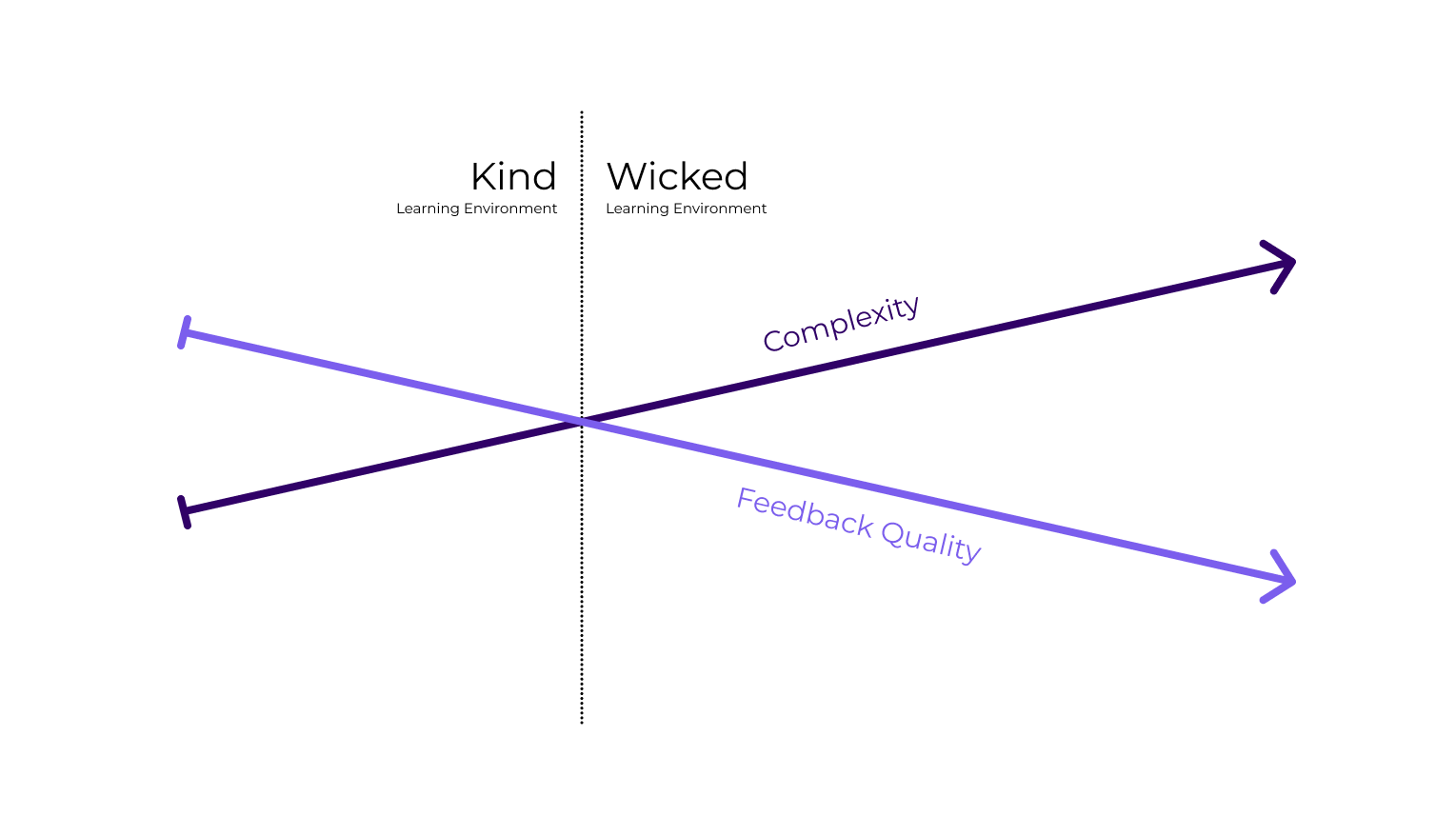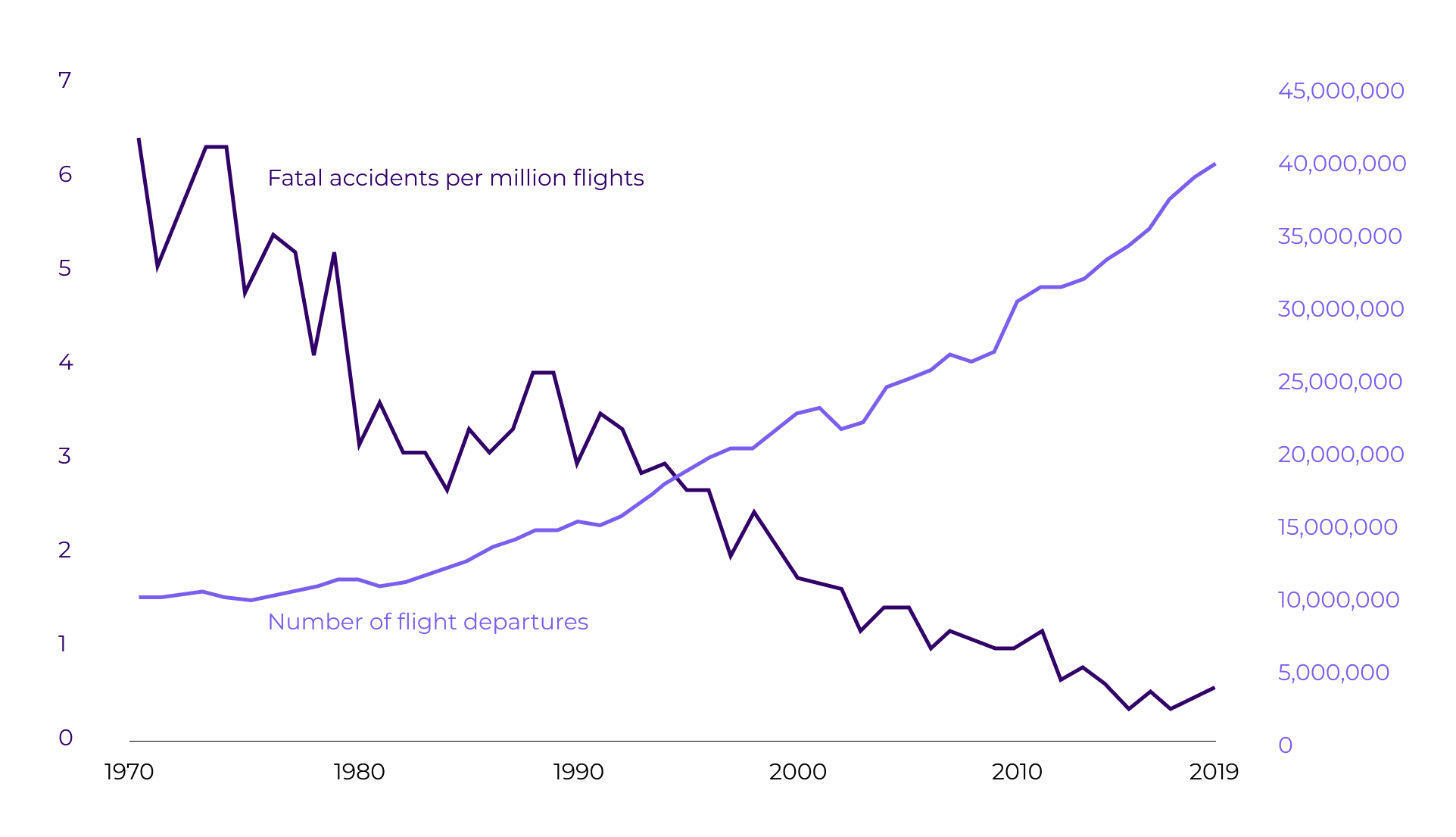
The more experienced you get, the better you are at your job.
It’s common sense.
Except it’s not.
You might not be improving at all.
You might actually be getting worse and you have no idea about it.
Doctors get worse as they get older
A huge research sample across 700,000 patients, treated by 19,000 physicians in the United States, discovered that the more experience a doctor had, the higher the chance that their patients would die:

Physicians are most skilled in the few years after they’ve finished their residency - an intensive period of specialist training and continuous feedback.
But over time the physicians’ clinical knowledge and adherence with up-to-date standards slowly drops.
And a major factor in this is feedback.
The quality and volume of feedback a physician receives after their residency falls off a cliff.
Kind and wicked learning environments
Some tasks are great at giving valuable feedback, allowing you to rapidly improve.
Learning to ride a bike is a good example. As you wobble along you receive a constant stream of feedback, so if you start to lose your balance you can immediately react and learn.
And once you’ve learned to ride a bike, doing it again in the future is… like riding a bike.
Psychologist Robin Hogarth and behavioural scientist Emre Soyer call this a “kind” learning environment.
Kind learning environments provide immediate, accurate, and abundant feedback, and the rules stay consistent, so the lessons gained from experience are reliable.
Unfortunately life and business are rarely like this.
We’re exposed to more complex situations with many contributing factors, filters and distortions. Results come with considerable delay. It’s easy to misinterpret them, or be misled. And there’s no guarantee that the lessons are reliable.
Hogarth and Soyer call these“wicked” learning environments.

As the learning environment becomes wicked, the feedback gets worse.
Physicians operate in wicked environments.
After treating a patient they have very little to do with the outcomes (the nursing and recuperation) and the feedback they do get is slow and not detailed enough to learn from.
To make things worse, it’s also easy to mistake wicked environments for kind environments, creating situations where we think we’ve learned the right lesson when in fact, we didn’t.
In 1861 Ignaz Semmelweis proved that hand washing and cleanliness were essential to reducing patient mortality. But it took another 30 years before it was adopted by other doctors!
For a whole generation the majority of doctors were certain that handwashing was not needed, because they were getting terrible feedback and didn’t know it.
Taming wicked learning environments
Another wicked environment is air travel.
But despite being a wicked learning environment, commercial flight has become increasingly safe:

The air industry has managed to learn and improve, successfully counteracting the wicked learning environment they operate in.
They've done that by collectively working to significantly increase the quality of feedback and their ability to learn.
Any time an airliner crashes there is a thorough and open investigation to understand exactly what happened, and safety recommendations are made to prevent similar incidents happening in the future.
You’re working in a wicked learning environment
For any individual or business that wants to improve in a wicked learning environment you have to increase the volume, accuracy and immediacy of feedback.
It’s why we founded Yumpingo; to help restaurants and hospitality businesses succeed in a classic wicked learning environment.
Mystery dining, online reviews and top-level feedback surveys do not provide the quality of feedback needed.
By providing low-quality feedback these services actually mislead their users by presenting information as if you are operating in a kind learning environment.
For feedback to be actionable and to empower you to make informed decisions, it has to be accurate, granular and recent.
It’s only when you have the right feedback that you can learn and improve.